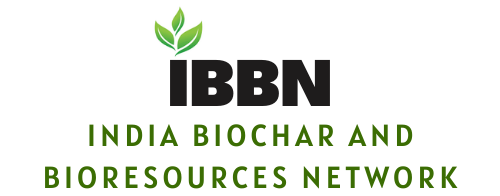What is Biochar ?
Biochar is a product and a potential tool in the struggle against impoverished soils and climate change.
Biochar is a stable, highly water and nutrient-retentive product that benefits microorganisms and has a very high carbon sequestration potential and that can be produced by repurposing residual waste instead of burning them in the open.
Biochar can be easily produced by farmers in simple Kilns through thermo-chemical processes to improve soil properties and ecosystem functions. It is not a single compound and is usually viewed for its multi-purpose use called Biochar systems.

Multiple Benefits of Biochar Systems
Long term carbon storage
Improves Nutrient storage
Tree growth
Root growth
Higher Biomass
Root nodules
Soil organic microbial carbon
Reduces the emission of Nitrous Oxide
Leaching of soil nutrients
Plant Phosphorus availability
Nutrient and water use efficiency.
Dangerous heavy metals
Reduces soil compaction
Water holding capacity
Efficient and cost effective way of removing carbon
Remains for hundreds of years
IBBN’s Bioresources mandate
The broad definition of Bioresources includes all plants, animals, wildlife, microbes, and fisheries in rural fields, hills, and mountains, urban landscapes, laboratories, wetlands, forests, oceans, and grasslands with diverse potential applications. In addition to food, its concerns are universal and personal, big and small, based on tradition and propelled by innovation in various sectors from medicine and fuel to exotic cuisine and cosmetics. This encyclopedic definition of Bioresources is too general for IBBN’s focus.
The first comprehensive documentation of sustainable agriculture in modern times was in India when in 1905, the British botanist Sir Albert Howard, often referred to as the father of modern organic agriculture regarded traditional Indian farming practices as superior to conventional agriculture science. Unfortunately, within half a century, extractive farm practices such as higher use of chemicals and burning of crop residues had degraded Indian soil and ecosystems across the country.
IBBN works at the interface between agricultural practices, social and institutional structures, public policy and the global environment to promote conservation and responsible management of bioresources.
The Scope of our work on Bioresources Include:
- Sustainable soil, land, water, crop, and microbial management through conservation agriculture and modern technology.
- Climate change, its impact on bioresources and agriculture, and mitigation strategies.
- Post-harvest management of agricultural produce.
- The adoption of social, economic, technological, and institutional innovations to achieve our goals.
